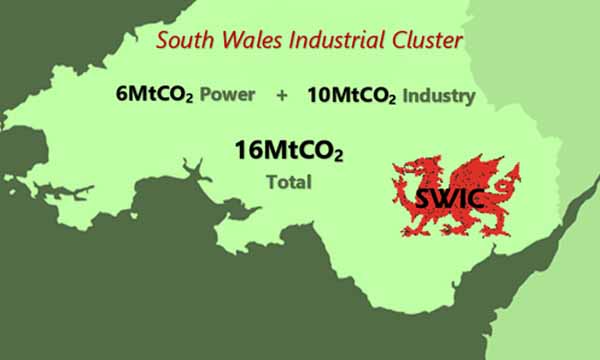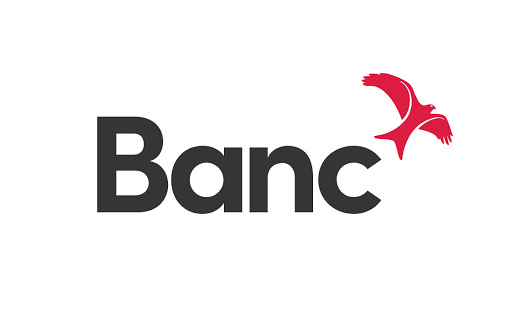Wales has a proud industrial heritage. Today its industries are the powerhouse of the Welsh economy, delivering more than a million jobs* across agriculture, construction, energy, hospitality, manufacturing, mining, science, technology and tourism.
Given the importance of industry as an employer, innovator and generator of GVA to ‘Wales plc’ decarbonisation presents huge challenges and opportunities.

We need to steer a pathway that ensures the growth of a resilient, dynamic matrix of industrial sectors, where we can continue to exploit our capabilities in new low-carbon technologies and markets, transforming into a green and competitive industrial base. The net result? Welsh industry is responsible for one of the UK’s largest emission levels, consisting mainly of carbon dioxide (95.83%), methane (3.53%) and nitrous oxide (0.63%). The challenge we face? By 2030, we need to have reduced our industry sector emissions by 43% from baseline (1990s) levels.
How are we going to do that?
By drastically improving efficiency across our use of energy, materials, processes and waste heat.
By radically increasing low carbon heat and industrial process measures.
Achieving this at speed and at scale will be paramount, given the current emissions level of Welsh industry. At 14 MICO2e, our industries account for around 30% of the total emissions in Wales. Iron and steel production (11.0%), together with petroleum refining (4.9%) and manufacturing and construction (2.8%), are responsible for a substantial part of the total – but the diversity of our industrial base is demonstrated in the significant emissions of many other industries. By working closer than ever before with R&D to develop the step-change technological options needed for wholesale industrial decarbonisation.
And, critically, by collaboration between industry, government and communities, exploring the opportunities of decarbonisation, such as fuel switching, carbon capture utilisation and storage (CCUS); plus offsetting the residual carbon dioxide by other means, such as negative emissions technologies.
* Source: Stats Wales. Workplace employment by industry in Wales and Welsh NUTS2 areas. 2021. Figure does not include education, health and public administration.
Wales’ industrial complex has already been working between 2016-2020 to meet the targets set out in Welsh Government’s Carbon Budget 1, as well as participating in UK Government funding calls to access investment that will develop new ideas, exploit new technology and adopt new business models that encourage a circular economy approach.
We have been an active partner in everything from the Climate Change Levy and Industrial Emission Reduction Support programme, to the Economic Action Plan and the Energy Efficiency Scheme – contributing a strong voice to the need for an industry-led decarbonisation group, a policy position on fossil fuel extraction, a best way forward for industrial heat recovery, a strategy for carbon capture utilisation and storage; and a Food & Drink Action Plan for sustainable growth.
That collective vision and spirit of collaboration has borne fruit through the establishment of the South Wales Industrial Cluster (SWIC).
In February 2021, the South Wales Industrial Cluster was established – a partnership between industry, energy suppliers, infrastructure providers, academia, the legal sector, service providers and the public sector – with two projects totalling £40m funded through UK Government’s Research and Innovation’s Industrial Decarbonisation Challenge – to map out what is needed to support South Wales in becoming a net zero carbon region by 2050. South Wales is the second largest industrial emitter in the UK, releasing the equivalent of 16m tonnes of carbon dioxide per year across industry and energy generation. The projects, led by CR Plus and Costain, entitled South Wales Industry – A Plan for Clean Growth, and the SWIC deployment project, will last for 36 months. Their aim: to boost industrial competitiveness, drive inward investment, create jobs for a low-carbon global economy and grow low-carbon export markets.
The Industrial Decarbonisation Challenge supports the delivery of the UK Government’s Clean Growth Grand Challenge and the Industrial Clusters Mission, which has set an ambition to establish the world’s first net zero carbon industrial cluster by 2040, with at least one low-carbon industrial cluster by 2030. The mission will help place the UK at the forefront of the global shift to clean growth, by driving the technologies, services, and markets to produce low carbon industrial products.
“Achieving net zero and at the same time reversing the decline of heavy industry to create a new economic prosperity for Wales.”
The heart of the SWIC project is aimed at achieving net zero and at the same time, reversing the decline of heavy industry and creating economic prosperity for South Wales – developing a plan to preserve the existing 113,000 manufacturing jobs and potentially creating thousands of new skilled jobs by 2050.
While this plan is dynamic and widereaching, SWIC appreciates there is no silver bullet for decarbonisation of industry – and will present numerous green pathways to help ensure the wellbeing of future generations.
With its partners, businesses and organisations stretching from Pembrokeshire to Monmouthshire, SWIC is developing holistic industrial site options and creating a solid and achievable plan to decarbonise industry. It’s doing this through energy efficiency, fuel switching and the creation of local energy hubs, to help ensure South Wales industry as a whole achieves net zero by 2050.
Dr Chris Williams, who heads up SWIC for Industry Wales, describes the cluster’s work as “an aspirational vision-setting project that includes the development of a step-by-step roadmap for the decarbonisation of our industries, and the infrastructure required to achieve net zero.”
“It’s a lot to take on, but what is clear is that doing nothing in South Wales is no longer an option. We have to be developing a net zero vision and plan. By not developing a South Wales plan we risk losing our industries to other areas that are.
“We therefore need to move to the forefront of decarbonisation activities, utilise our excellent universities and create exciting new industries, as well as revitalising and sustaining our existing industrial base.
“We have to use this project to pull together ‘net zero team Wales’, working with academia and all levels of government to ensure we develop the best plan possible.”
Industry in Wales is about to decarbonise – enabling a green revolution that can and must transform our economy and society.




